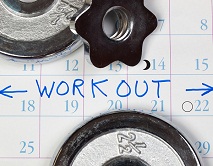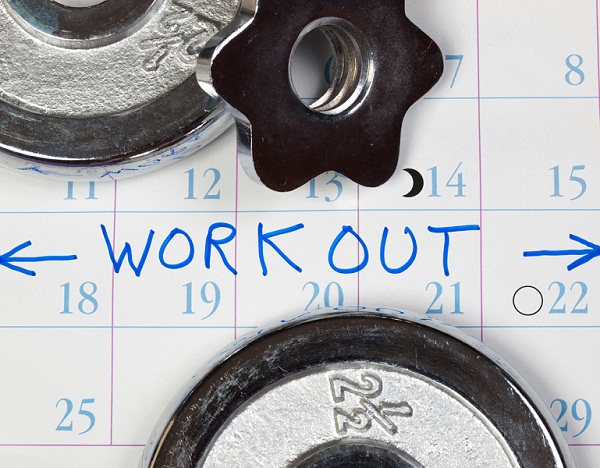Easing into Exercise Habits

For the beginning exerciser, learning how to fit physical activity into our already busy lives can feel overwhelming. As fitness professionals, we need to be creative in helping our clients overcome this barrier and achieve a healthy lifestyle. Very few people wake up one morning and successfully transition from a couch potato to an athlete in a single day.
To successfully help someone achieve a healthy and active lifestyle, small changes can create a huge payoff. Fitness professionals must promote exercise as a habit, not a chore. Small changes allow beginners to see the immediate benefits of an active lifestyle, and become more willing to devote regular time to their fitness goals. Starting slowly instills exercise as a habit, making it feel less like an inconvenience. Here are some small changes that can help you get into active lifestyle practices:
1. Plan a 10 minute walk after meals.
To a busy person, 30 minutes of exercise daily can feel like an eternity. Where can I find 30 more minutes in my day? But, an extra 10 minutes can feel much more manageable. A sneaky way of getting 30 minutes of walking per day is to take a 10 minute walk after each meal. You’ll feel better, eat less, and meet the minimum requirements for exercise and health!
2. Be an early riser.
Set the alarm 30 minutes earlier than normal. With that extra 30 minutes you can go for a short walk or jog, do some yoga, or even complete a quick exercise DVD routine. Most people find that they don’t miss that extra half-hour of sleep, and reap major rewards for starting the day off active!
3. Choose to be active.
Take the stairs. Park further away. Take the dog for a walk. Walk over and talk to that coworker instead of sending an email. These choices do add up.
4. Make exercise a priority.
If we wait until we have time to exercise, we will never exercise. Successful exercisers make fitness a priority. Look at the calendar for the week, and schedule the time that you are going to spend on yourself each day. If you make an appointment with yourself, you are more likely to keep that appointment.
5. No one is perfect.
Read that again: no one is perfect. Everyone is allowed to have one bad day, just make sure that one bad day doesn’t turn into a bad month, followed by a bad year. Most people think that if they have a bad day or week, that they have failed and often stop their exercise habit. If you fall off the wagon, just jump back on. Consistency is key! Something, even 10 minutes of acitivity, is always better than nothing!
Remember that lifestyle change is a process, not a destination!
The American College of Sports Medicine advances and integrates scientific research to provide educational and practical applications of exercise science and sports medicine. Since 1954, ACSM has been leading the way in the scientific and public health aspects of physical activity, exercise science and sports medicine. Through its unified membership, ACSM brings together global experts in multiple disciplines from science to practice to policy, including education, medicine, research and health and fitness, to deliver real-world programs that are making a difference in people’s lives.
Kelly Drew, M.S., is an ACSM Registered Clinical Exercise Physiologist with Community Bariatric Surgeons at Community Health Network in Indianapolis, IN. Kelly is currently a member of ACSM’s RCEP Committee for Certification and Registry Board. Kelly is passionate about helping people achieve their health and fitness goals through lifestyle change and exercise intervention. The American College of Sports Medicine is a member of the Together CountsTM program and Healthy Weight Commitment Foundation.

